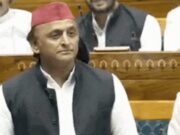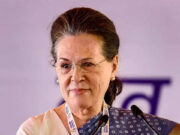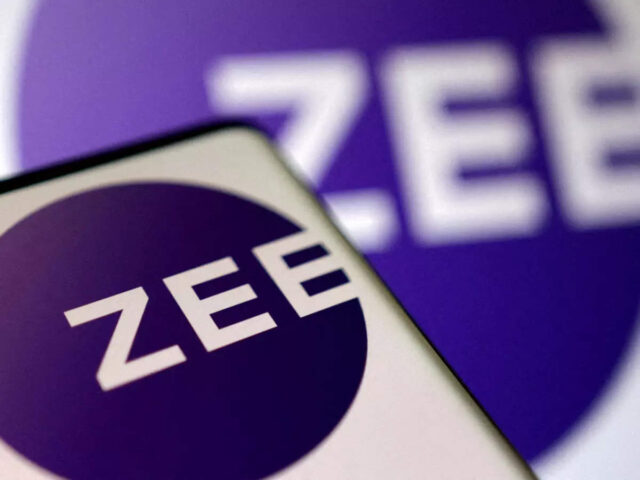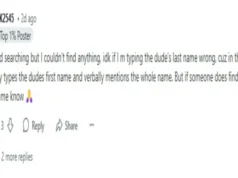In the midst of a comprehensive assessment of the business, Goenka told Vinod Mahanta & Javed Farooqui that any asset failing to generate profit will be divested from the media company’s portfolio. He also spoke of the challenges facing Zee after the merger failure, impact of the Reliance-Disney merger on the industry, Sebi’s allegations of fund diversion, and his ambitious turnaround plan. Edited excerpts.
Have you had any conversations with Sony after it terminated the deal?
No, we have had no conversation with Sony after termination of the deal. I’ve always believed in living in the present and focusing on the future. What’s in the past, is in the past. So, it’s time to shift our focus to the journey ahead.
Then why has Zee gone to National Company Law Tribunal seeking implementation of the merger scheme?
The application we’ve filed simply states that the grounds for termination are incorrect.
Therefore, it’s not our failure. NCLT has the jurisdiction to determine the validity of such a scheme.
Has Sony filed an application before NCLT for withdrawal of the scheme?
Not that I am aware of. Till yesterday (March 2), nothing has been served to us.Are you seeking a strategic or financial partner, now that the merger deal with Sony is over?
This is a very rich asset and I’m sure a lot of people will be interested in it. We are always open to dialogue, whether it be financial or strategic investors. Although I don’t think there are (many) strategic options left in the market but certainly, there are financial options.However, the focus now is to ensure the company continues to deliver value to shareholders. I have committed publicly to my shareholders that in FY26, I will deliver an 18-20% Ebitda margin, which should roughly translate to over Rs 2,000 crore of Ebitda on a cash basis.
Have you held discussions with any financial investors?
No, we are not in active dialogue because we’re still in the midst of NCLT proceedings. Our merger cooperation agreement restricts us from engaging with anyone else.
Do you have a sense of regret that after two years, the deal with Sony didn’t go through?
We had a promising deal with Sony, but for various reasons, it didn’t materialise. Now, our sole focus and intention is directed towards our business. We’re a debt-free, cash-rich company, with over Rs 800 crore of cash on our balance sheet as of December 31. We’re generating positive Ebitda and cash flow, and we have a top-notch team capable of rebuilding the business.
How do you aim to achieve Rs 2,000 crore Ebitda by FY26?
We will achieve this target through three things — frugality, optimisation and sharp focus on quality — besides making sure that every decision is based on return on investment, which is the DNA and mantra that Zee has always lived by. We’ve had distractions in the last couple of years. Those distractions are over.
Have any of the financial investors asked the Zee board for a change in management?
While no one has approached us with such ideas yet, it’s crucial to remember that success speaks for itself. Those who deliver results will continue to be valuable to shareholders. Conversely, if one fails to deliver, changes may indeed be warranted at some point. Shareholders have every right to seek change if they lack faith in the management or the board.
To achieve the 18-20% Ebitda target, will you exit the sports business and cut down digital investments?
I’ll reiterate — I will chop off anything that doesn’t yield a return on investment. I have shut down more channels than I have launched in the last 20 years since I joined. I firmly believe that if it doesn’t generate profit, it doesn’t belong in our portfolio.
What will your future growth drivers be, considering broadcasting is not growing fast enough and streaming is still loss-making?
Streaming may currently be operating at a loss, but the losses are on a downward trajectory… It indicates a positive trend, suggesting that profits will likely follow suit. Additionally, we’re aiming for an 8-10% compound annual growth rate (CAGR) on our revenues. This growth will be driven by a combination of factors, including digital and linear television advertising, as well as subscription revenue from both digital and traditional sources. The Ebitda target will be attained through a combination of revenue growth and cost management. We’re not assigning specific percentages to each aspect. Rather, our focus is solely on reaching this target figure. Additionally, we’re concentrating on achieving growth in line with our objectives.
Does cost management mean layoffs and shutting down a few businesses?
In our industry, a 15-17% churn rate is typical, so natural attrition may play a role in this process as well. We need human capital to run this business. Optimisation of human capital is what is needed.
We’ll be evaluating certain businesses with a final lens, determining when and how they will be shut down. A part of those businesses were part of the merger scheme. However, some international businesses may be reconsidered because they were profitable and we had to shut them down due to the merger. There have been instances where we have lost $10-12 million of profits from those businesses.
How will the Reliance-Disney merger change competitive intensity of the sector and how will it impact Zee in particular?
Competition is always welcome in our industry. I firmly believe it brings out the best in us — whether it’s in terms of our topline growth or profitability. Disruption isn’t exclusive to anyone. If others can disrupt the market, so can we. No one has a copyright on innovation. I’ve always believed that it’s better to fragment the market than get fragmented. If that means shaking up the market or adapting to new rules, we’re prepared to do whatever it takes to remain competitive.
What is the status of the ICC television rights deal with Star as of today?
From my perspective, the contract with Star has effectively been terminated due to their actions. The agreement only required Star to telecast the semifinals and finals of the recently held under-19 World Cup. However, they chose to broadcast the entire series without our consent. Therefore, in my view, their actions have nullified the contract.
The Securities and Exchange Board of India (Sebi) lawyer has told the Securities Appellate Tribunal (SAT) that Zee promoters are not cooperating in the probe related to fund diversion. Your comments?
I cannot speak (as) to what they said before SAT. However, I want to clarify that I am not at the beck and call of Sebi. While I am fully committed to cooperating with their requests, I must adhere to logistical constraints. If I am situated outside of India and summoned by Sebi, it’s not feasible for me to appear immediately. I would need to return to the country first. We have diligently complied with Sebi’s requests, submitting every document within the specified timelines. Additionally, we have formally requested extensions, when necessary. It’s important to note that any assertions made by Sebi are based on their submissions, not mine.
What if Sebi, after investigating the fund diversion case, bars you from holding any key managerial position (KMP) in the company again?
If regulations dictate that I cannot continue at a KMP in the organisation, then I must accept that decision. Ultimately, if I am required to vacate my office and the seat on the board, it will be up to the shareholders to decide on the next steps, and who they wish to bring in as a leader.
What will the Goenka family’s plan be in case of an adverse Sebi decision?
Every promoter works on multiple plans, depending on the circumstances. There is nothing for me to say right now. We’re awaiting the final order from the regulator to see what steps need to be taken.
It’s worth noting that Sebi issued its confirmatory order in August 2023, and the matter has been challenged within SAT. SAT has set aside Sebi’s order, stating that the findings were incorrect. This underscores the importance of ensuring evidence before making allegations. We’re awaiting further developments and will act accordingly once the final order is issued.
Don’t you think that the merger with Sony could have been salvaged if you had agreed to step down?
In my affidavit before NCLT, I stated that I was willing to vacate the chair, provided the regulation says that I had to vacate the chair. That’s all I stated. I cannot compel Sony to retain me as an employee. If Sony had decided to proceed with the merger, they (would have) had the authority to close the deal and then request my departure shortly after. My stance was simple — I won’t leave the organisation until the merger is completed. It’s a matter of responsibility to my shareholders. If I were to depart before the merger is concluded, it would leave shareholders in a vulnerable position. Therefore, my departure was contingent upon the successful completion of the merger.
How do you respond to Sebi’s allegations in a reply to SAT that the alleged fund diversion by Zee promoters could be as high as Rs 2,000 crore?
I don’t know how to react to that because the board has done a full audit. My statutory auditors have given a report; we got a special audit done by Grant Thornton.
Sony has done due diligence on this company. But after that, four entities did not find anything wrong.
There has been no misappropriation of funds within the company. While we may have made some incorrect business decisions that resulted in financial losses, there has been no wrongdoing on our part. If certain businesses, such as Margo, have experienced losses, it’s due to legitimate business risks and decisions, not any fraudulent activities. I challenge anyone to provide evidence suggesting otherwise.
Has the promoter family started increasing its shareholding in the company?
I want to reiterate that my primary focus is on the business. The family’s shareholding is their concern, not mine. Regardless of the changes in shareholding, my dedication to this company remains unwavering. Whether I own 46% or 4%, my passion for this business will remain the same.







































